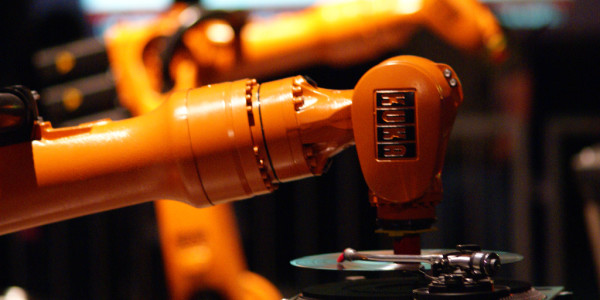Bill Gates proposed the idea of taxing industrial robots. This might be a little alarming to anyone who owns factory machinery. Why would we need to tax robots, and does it make sense to tax robots?
Why would we tax robots?
The idea is that right now a worker pays taxes on his wages. If a robot replaces that worker, however, that income tax, social security tax, etc. is lost. A robot doesn’t pay taxes, so our government loses revenue.
If a single industrial robot can replace 6 workers, and we add hundreds of thousands of industrial robots, the revenue lost racks up pretty quickly.
It’s clear that automation can displace workers. So how do we compensate for this lost revenue? Gates suggests that a robot that replaces a human worker be taxed on a similar level.
Freeing up labor allows humans to do things that machines aren’t good at. Caring for the elderly, teaching students, helping those with special needs. Automation gives us the opportunity to improve in these areas.
But income tax from manufacturing, industry, etc. funds these things. Automating these jobs frees up labor, but you lose revenue from the taxes that these workers paid. Taxing the machines could be a solution.
Gates proposes that the revenue could come from some type of robot tax or from the profits that result from decreased labor costs of automation.
Does it make sense to tax robots?
While Gates makes a good case for taxing industrial robots, it goes without saying that there are those who would oppose such a tax.
It seems both rational and reasonable to implement a robot tax to replace the lost revenue from income taxes, but that doesn’t mean that everyone would be on board.
After all, cost savings is one of the main advantages to automation, and paying a tax to offset the loss in revenue from taxes chips away at that advantage.
One thing is clear, however. The fact that we’re having these types of conversations shows that as important as automation is right now it’s only going to grow in importance. Make sure that your motion control system is ready for whatever the future holds. Contact us or call 479-422-0390 for any of your Indramat needs.



